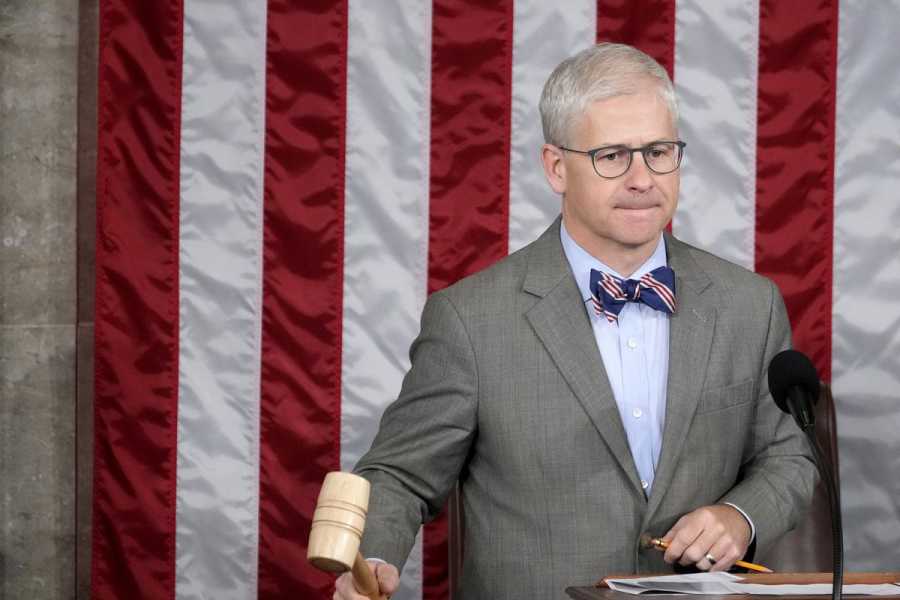Jim Jordan lost. Now the party is searching for new speaker candidates.

Speaker Pro Tempore Rep. Patrick McHenry (R-NC) presides over the House of Representatives at the US Capitol on October 20, 2023, in Washington, DC. Drew Angerer/Getty Images Andrew Prokop is a senior politics correspondent at Vox, covering the White House, elections, and political scandals and investigations. He’s worked at Vox since the site’s launch in 2014, and before that, he worked as a research assistant at the New Yorker’s Washington, DC, bureau.
Republicans’ search for a new speaker of the House has gone back to square one.
After Rep. Jim Jordan (R-OH) fell short of the votes he needed on the House floor a third time, House Republicans voted to ditch Jordan as their party’s speaker nominee. Jordan lost the closed-door secret ballot vote 112 to 86, per CNN.
The House GOP will open the contest up to new candidates and meet again on Monday.
Jordan’s defeat means that three of the most prominent figures in the House GOP — former speaker Kevin McCarthy, Majority Leader Steve Scalise, and Jordan — have now failed to unite the fractious conference.
Right-wing holdouts deposed McCarthy and doomed Scalise’s speakership bid by insisting on a hardliner as speaker. But those holdouts have now been counterbalanced by a newly emerged bloc of mainstream members who took down Jordan and are insisting the speaker not be a hardliner.
The tremendously difficult challenge is that just one GOP candidate somehow needs to unite nearly all members of both camps, even though they have seemingly irreconcilable demands.
The “some rando” option
With such long-established, high-profile Republicans falling flat, several much less well-known members of Congress will now try their luck. Reps. Kevin Hern (R-OK), Jack Bergman (R-MI), Austin Scott (R-GA), Byron Donalds (R-FL), and Mike Johnson (R-LA) declared their candidacies Friday afternoon after the GOP voted to drop Jordan. So did Tom Emmer (R-MN), who’s currently the House Majority Whip — No. 3 in GOP leadership. More may follow.
But here’s the math problem that has bedeviled every speaker contender so far this year:
- A GOP speaker candidate needs the votes of 217 out of 221 Republicans on the House floor (if no Democrats offer their backing).
- Roughly 180 Republicans appear to be team players who will happily back any nominee preferred by most of the conference.
- But there are about 20 holdouts on the right who have embraced hardball tactics to try and force a more right-wing speaker to be elected.
- And now there’s a newly emerged roughly 20-person anti-hardliner bloc composed of mostly mainstream or swing-district members.
The GOP’s new speaker candidates have little national profile. But perhaps it will take someone who is less firmly associated with either the existing leadership or the hardline-right faction to unite the GOP — someone who can make nice-sounding promises to both sides.
At least, it’s worth a shot. I guess. We are clearly at a “throwing things at the wall and seeing if anything sticks” phase of the speaker election morass. So next week, we’ll see if the “some rando” solution manages to fix things.
That will mainly be a question for the right-wingers. The mainstream and swing district members generally want to get the House back open and elect a speaker — they just had specific grievances against Jordan — but they’d likely support Generic Republican for the job. The hardliners on the right, though, will have to decide whether to keep holding out in hopes of getting the far-right speaker of their dreams, or whether to come to some sort of compromise.
Sourse: vox.com





